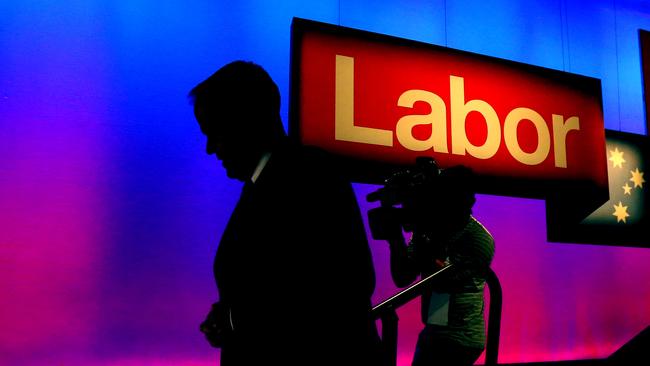May these forces not be with you
It seems we are set, as Australians, to continue our streak of legendary self-sabotage in 2019.

A meek surrender by me this week to the greater forces who vehemently oppose many things, such as plastic shopping bags. After almost a year of intending to take the permanent grocery bags shopping, forgetting them entirely, and at the last minute having to buy new ones, I finally succeeded, and at the counter triumphantly produced four for the man, who packed them full.
Pride was the icing lathered over the cake of humiliation — yes the forces beat me, but at least I remembered to submit.
Dignified surrenders on various topics to the ongoing tyranny of the generally aggrieved might well be a political theme for 2019. It seems we are set, as Australians, to continue our streak of legendary self-sabotage, inflicted on ourselves via our generally pessimistic public narrative. First we find a non-existent problem, then we talk about it to the point of hysteria, then the government steps in to fix it, then everybody suffers.
Last year, house prices were too high, according to some, and credit was too easily available. The wealth of the average Australian had soared and no, this was not fantastic news, not a cause for celebration, because not every single person in the country had been able to directly benefit, as they were not all in the property market. So some people had accumulated more wealth than others and, as we know, this is an intolerable scenario.
Accordingly, the forces were summoned. There was much agitation and angst over how to address the “housing crisis”. Intervention occurred to “take the heat out of the market” and bring prices down, lending was tightened, and voila, look at us now, we have manufactured a situation out of thin air that has reduced our collective wealth. One wonders if now everyone is happy. The rich won’t care, of course. In trying to tear down the tall poppies, the baying crowd stomped all over the seedlings, as always.
This year, expect to hear the term “inclusive growth” bandied about in the lead-up to the election. It is a term adopted by Labor and can be taken to mean a number of things, but summed up can be described this way: you have more than me, and I don’t like it, so government must do something about it.
For instance, to achieve inclusive growth in the property market we must eliminate negative gearing for all properties except new ones, and increase capital gains tax too. How this will help those not in the property market is a complete mystery to me. I would have thought that raising taxes makes everyone poorer, but no, if you listen to Labor, raising taxes will make poor people richer, and houses more affordable, without reducing the price of houses at all.
Clear as mud?
There is merit in helping people not in the market into the market, though, and it is baffling to me that someone in the government or opposition hasn’t taken one of their gruelling “study tours” to the US, and come up with a sensible suite of policies based on the American model. The American system actively supports home ownership, and despite recent trimming of incentives, policies are still both generous and sensible, and promote the right type of behaviour among the people.
In the US, citizens are allowed to negatively gear the house they live in, plus one other home, such as a vacation home. The interest on their loans, up to a cap of $750,000 worth of housing debt, is deducted from their income tax liability. This assists people, and provides a great incentive to buy a house, which as we all know is the beginning of the path towards financial independence.
Perhaps we should allow people to negatively gear the interest on a certain amount of debt on property, whether they live in the property or rent it out. There are people who can afford to buy a house but not live in it, so they rent it out to get the tax breaks. This is a silly situation surely. Why don’t we let people get the tax breaks on the house they have bought, whether they live in it or not?
Stamp duty is another killer for non-home owners and homeowners alike. It is an outrageous tax, criminal in its design, as it is linked to prices, and so prohibitive now that it prevents people from moving as well as buying. The fact that people are reluctant to move house because of stamp duty distorts supply and affects prices.
The federal government cannot control the states and territories but it could make an effort to eliminate stamp duty, or even just ameliorate the impost by allowing people to deduct it off their income taxes — up to a cap, of course.
Finally, capital gains tax should be eliminated, entirely. People work to earn an income, pay tax on the income, and then invest their savings. They take a risk with money on which they have already paid tax, and in the event the risks pays off, they make a gain. Then, the government takes another amount, up to almost 25 per cent, of the gain made. CGT is a disgraceful disincentive and a barrier to the creation of wealth.
The best thing any government can do for their people is to make it as easy as possible for them to create wealth. Taxation cruels wealth and, accordingly, should be carefully levied. If we want increased social mobility then we must decrease the taxation burden. Governments that remember this much and act accordingly at all times are the only types of governments worth electing.



To join the conversation, please log in. Don't have an account? Register
Join the conversation, you are commenting as Logout